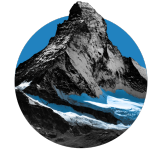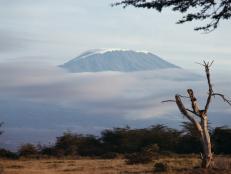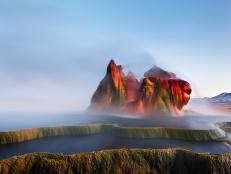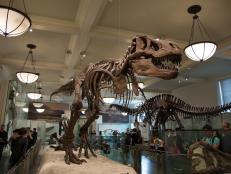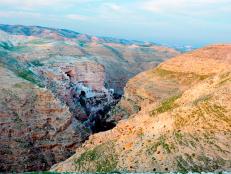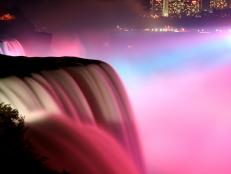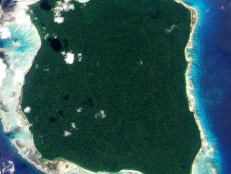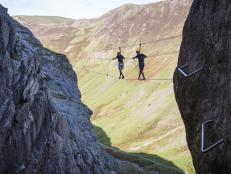All Exploration Articles
Showing 61 - 75 of 171 results
Tanzania: Beyond the Wildlife
Most people know that Tanzania is home of the Serengeti and an amazing diversity of wildlife. The country is made up of 430 species of wildlife and 17 national parks. But did you know that it’s where 51 million people call home as well?
5 Wonders You Probably Didn't Know Were Man-Made
Most of the planet’s most majestic wonders have either sprung from the earth or so evidently made by human hand that their architects and designers are world-renowned.
Day (or Night) at The Museum
Take a private tour of NYC’s American Museum of Natural History from home!
Adventure and Exploration in Israel’s Ancient Deserts
Israel is a country packed full of history and culture. Head out on an adventure to discover ancient ruins, crumbling monasteries, and lush oases.
5 of America's Most Extreme Destinations
Join Discovery as we explore five of America's most extreme destinations: Denali, Alaska (highest peak); Death Valley, California (hottest, driest, and lowest); Prospect Creek, Alaska (coldest); Mt. Waialeale, Hawaii (wettest); and Paradise Visitors Center on Mount Rainier (snowiest).
North America's Top Natural Wonders
North America is made up of natural wonders including unusual geological formations, towering mountains and icy glaciers.
Humanity’s Fascinating Relationship with the Winter Solstice
This year’s winter solstice will take place on December 21, marking the shortest day of the year in the Northern Hemisphere, and the arrival of winter.
The Mystery of the Crooked Forest
Nobody knows what happened to the pine trees in this strange and eerie forest. To date, it remains a mystery.
Want to See Area 51? Tikaboo Peak is the Closest You Can Legally Get
Catch a glimpse of the goings-on at the base from this picturesque view.
North Sentinel Island Is Home to the Last Uncontacted People on Earth
This area is one of the last uncharted places left on the map.
Climb England’s Stomach-Churning Iron Way
Adventure into Victorian England with rickety bridges and vertical climbs across a 19th-century mine.
The Crater Lakes of Mount Kelimutu Change Color All The Time
Whereas other colored lakes often get their hues from certain species of bacteria, Mount Kelimutu's lakes are a bit more mysterious.
Female Firsts: Meet Anna Roosevelt
During Women's History Month, we're celebrating the achievements of women throughout history and spanning the globe. From the pages of The Explorers Journal, we're spotlighting four women who broke boundaries in exploration, research, and science. Let's dig into the past with Anna Roosevelt.
The Smith Mansion Is a Giant, Twisting House in Wyoming That Killed Its Owner
You'll see this strange sight perched atop a hill among all of the area's picturesque landscape.
The Galapagos Islands Guide: What You Should Know
When to go, what to see, what to pack and more.








